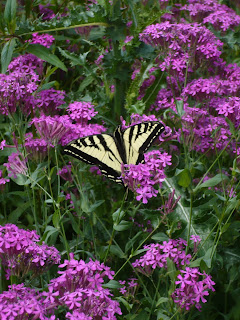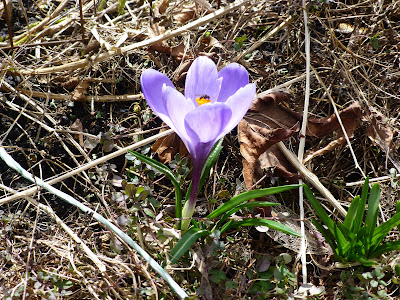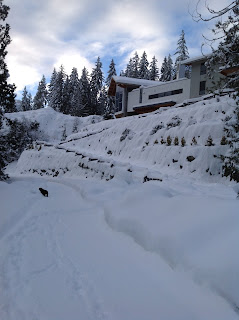It's officially summer (sort of, kind of, rain notwithstanding) and that means that the glaciers are on full display, the sisters are outside as much as possible, and new projects are happening all over the place.
The novitiate spent a lovely Saturday afternoon learning how to make handmade paper from water, recycled scrap paper and whatever natural materials we could put our hands on. Much fun was had by all, and the local flora has now taken on a slightly different character ("It's beautiful! It's majestic! ... will it paperify?") and we hope to keep experimenting with cards, books, bookmarks, stationary...
Thanks, Oma!
Despite the late start to summer, the garden is in full spring. While some plants still need a little help from their (stick) friends, the rhubarb is galloping and has been since about mid-May.
Some of the ever-expanding rhubarb found its way into tartlets to celebrate a visit from Canada's papal nuncio, Archbishop Luigi Bonazzi (the tart on the left is frangipane, decorated with dried fruit "leaves".)
One of the joys of monastic life is that of being assigned to work places and projects one would never have expected. About two months ago, I was assigned to the wood shop, to figure out how to make small pieces to sell in our gift shop (and, now, more frames to make paper with!). After a first month of "safety bootcamp", I still have all my fingers and am ready to go! The first project I've tackled is making small boxes using our bandsaw (also: I've learned how to repair the bandsaw). I love exploring the unique character of each piece of wood—these first two boxes were from scrap ends that were destined for the burn pile. I would have never imagined that there was such life lurking inside those dull, dust-covered blocks.
I found a woodburning pen in a closet, and now some of the boxes with a more "plain" grain are getting an alpine spruce-up (pun intended, but this box isn't spruce, it's cedar).
And now for something completely different: I'd like to introduce you to a brave and noble animal, common to our locale, of which I am particularly fond:
This fauna is especially beloved this year because they are
not in the garden (unlike last year, when they ate multiple basil crops). And yes, the bears are also all over the property, but given that we have at least two mums with multiple cubs hanging out on the south field, this particular photographer is staying
very far away. If the bear cubs want to be on the blog, they'll have to start taking selfies.
Until next time
(which will attempt to be more often, but if it's sunny out, well...), God bless!
Sr. Marie Thomas












































